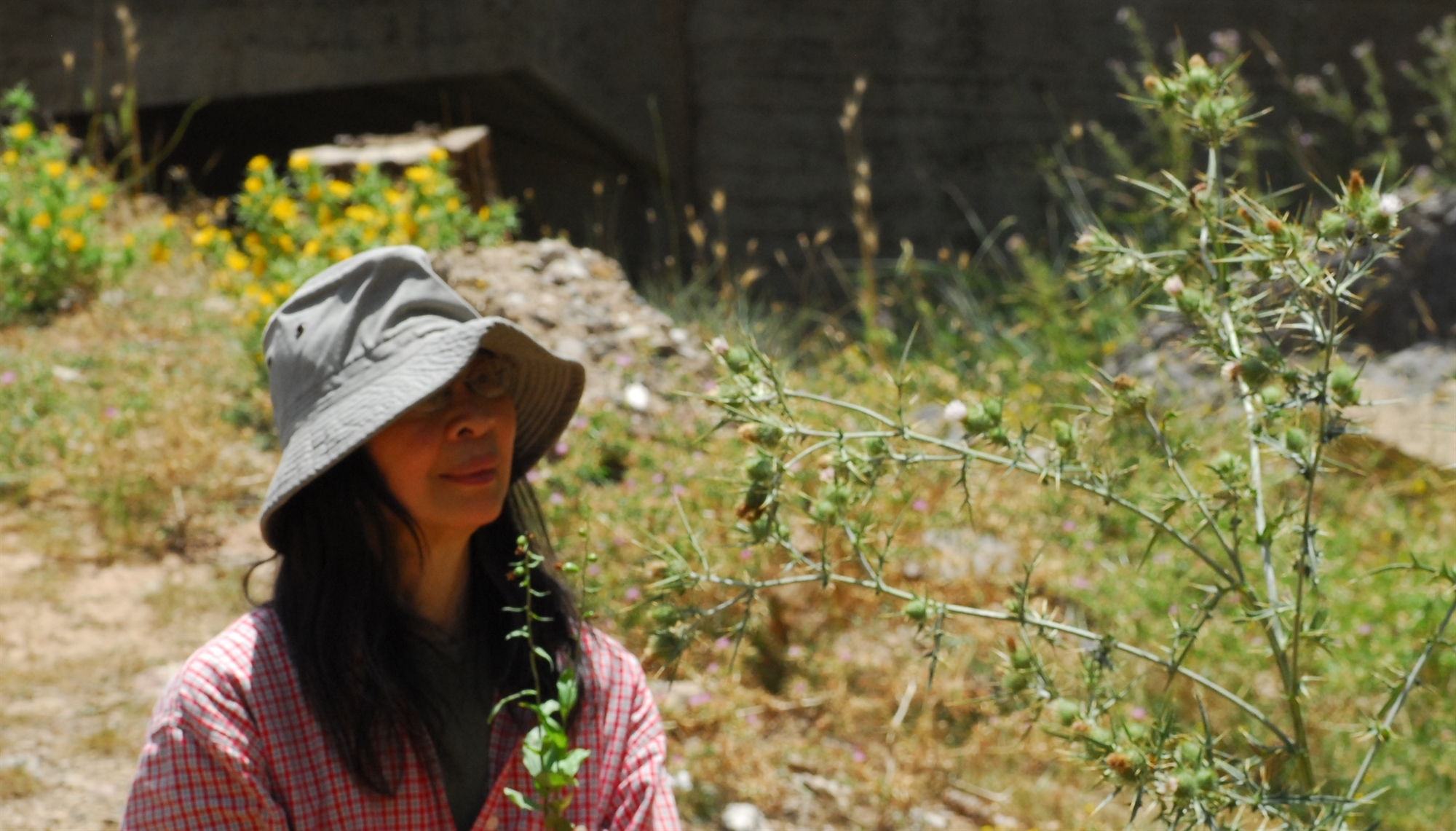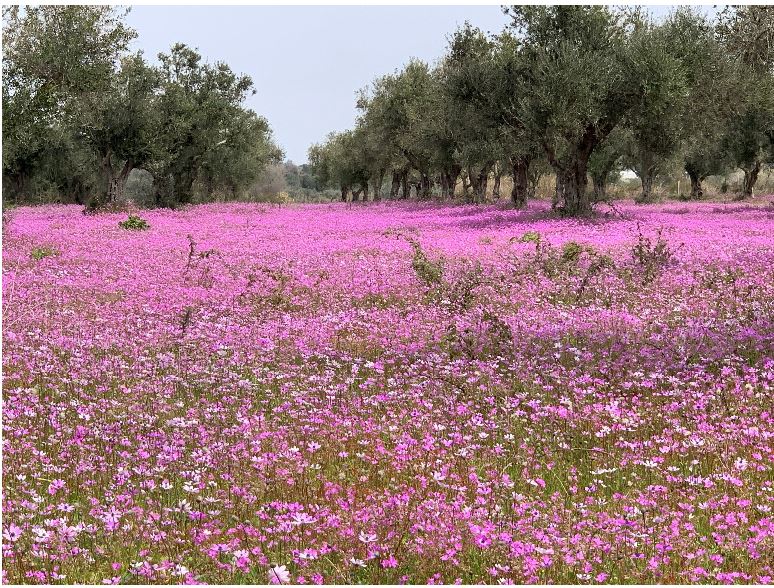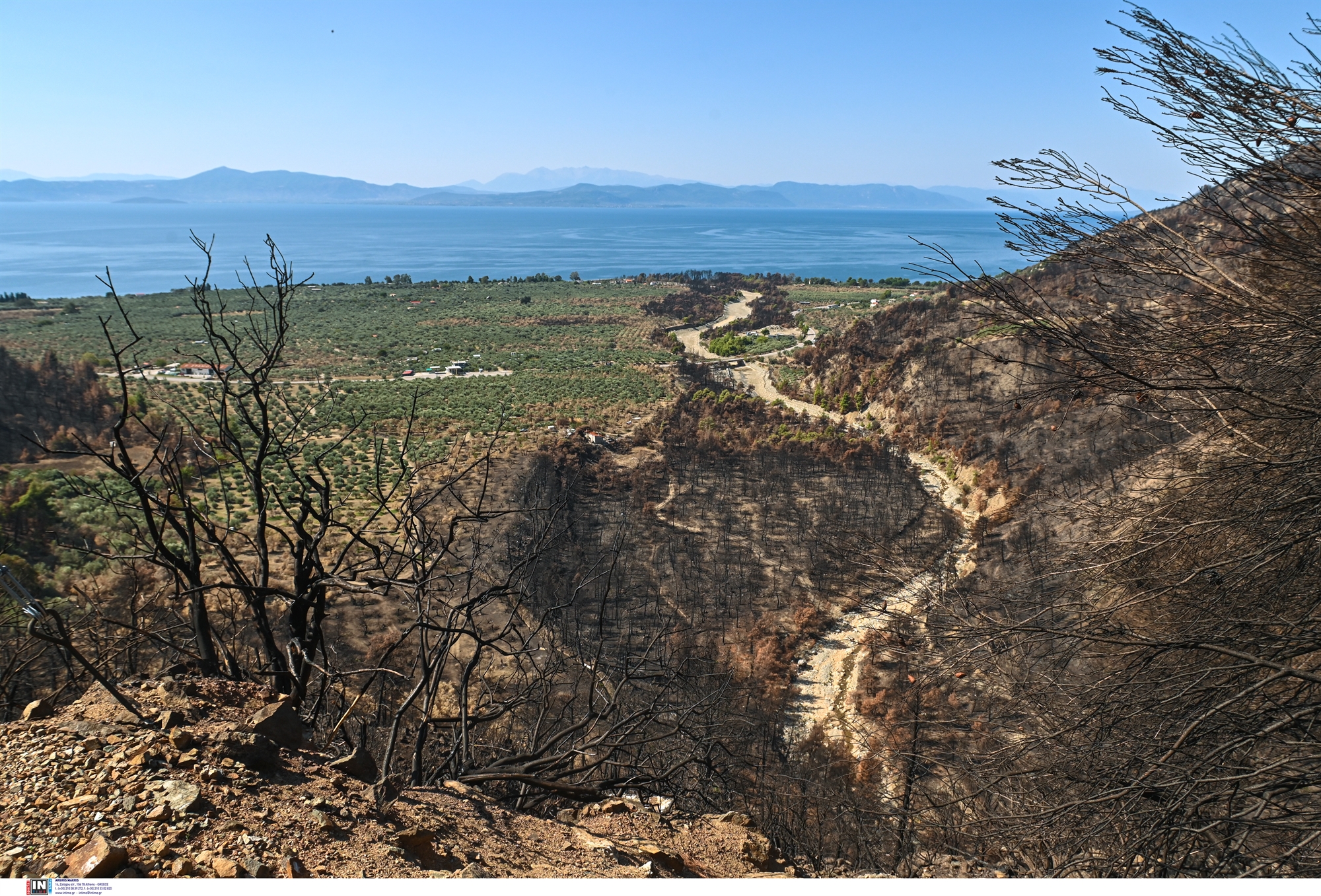
Electric vehicles, biomass pellet production, geothermal energy, drone firefighting, wind turbines on rocky islands. Daily life based on clean forms of energy and systems that prevent natural disasters could be the future of northern Evia, according to the proposals made at the 1st Interdisciplinary Ecological Crisis Program that soon took place in Loutra Edipsos. before the end of 2022. The initiative belongs to the Institute for the Development of Research and Education in the Arts, Sciences and Technology (ARISTEiA) of the United States, which brought it to life with the support of the DIAZOMA Association and the Northern Evia Reconstruction Committee.
Eighteen scientists from different fields of science and 30 undergraduate and graduate students from 26 universities in Greece, Cyprus, USA, Canada, Spain, Ireland, France, Germany, Sweden, Denmark, Belgium and the UK met in the place where a large-scale ecological catastrophy. “We aim to draw the attention of Greek students to the interdisciplinary dialogue that has been initiated for many years abroad,” says Mr. Konstantinos Drosatos, vice president of the ARISTEiA Institute and professor at the University of Cincinnati School of Medicine, referring to “K” Greece, which “located in the midst of a cyclone of ecological crisis” is perhaps the ideal place to start such a dialogue. “These six days on Evia we saw the beauty of the landscape, not destroyed by the great fire, we analyzed the causes that caused this complex disaster, and experienced people’s longing for his place, which began to decline in terms of population and economy even before the great catastrophe, ”he adds himself, tracing his origins to Evia.
“I was impressed by the skepticism of the local community towards wind turbines,” says Mr. Andreas Asiikkis “K”, a mechanical engineering graduate student at the Universities of Cyprus and Groningen, who is doing his thesis on floats in the sea. that generate wave energy. “In this case, I collaborated with other students on the placement of onshore windmills,” he explains. “In our proposal, we include the current legislation, which provides for reforestation in burnt areas of the forest, as well as the possibility of installing wind turbines in the forests.” However, as he notes, “when building wind farms, the carbon footprint is not negligible, so it should always be accompanied by parallel tree planting.” In the first calculation, pine trees in an area of 7.5 square kilometers correspond to 300 new wind turbines. “Wind farms, contrary to what their opponents believe, can be used for education and tourism.”
Proposals for tomorrow with clean forms of energy from the American Institute ARISTEiA with the support of the association DIAZOMA and the Committee for the Reconstruction of Northern Evia.
The effects of deforestation on the island were studied by a team that included Ms. Lydia Papageorgiou-George, who has a master’s degree in forestry. “Initially, we are proposing the establishment of biomass processing plants, such as flammable pine cones and pine needles, to create pellets and bioplastics,” he explains. At the same time, the idea of placing wind turbines on rocky islands, such as Strogili, is being put forward, a proposal that is estimated to be accepted by the local community. “Now is the time to explore geothermal energy in the area,” she recalls, originally from Edipsos. “This is a constant request from residents and it is possible that geothermal energy in the area has a lot to offer.”
A significant improvement in the daily life of the inhabitants can be achieved through the exclusive use of electric vehicles on Evia, even taking into account the island’s coastal shipping with solar-powered ferries. “This, of course, requires long-term planning and government subsidies, and now is the right time to bring this up for discussion,” said Mr. Yorgos Sideris, EKPA law student and president of the European Youth Association. Lawyers of Greece (ELSA). He himself found it extremely useful to exchange know-how between scientists from different fields. “We as lawyers are often asked to develop legislative proposals without the necessary scientific data,” he comments.
Ms. Irini Nomicu-Lazaru, who is working on her doctoral dissertation at OPA, spoke about the financial aspects of the proposals. “The idea of subsidizing recreation in the affected area was a good one, but please keep the production structure of the island on a stable basis,” she says in an interview with K. “Early warning systems for fire prevention do have a high installation cost, but the benefits they offer are priceless!”



Source: Kathimerini
Ashley Bailey is a talented author and journalist known for her writing on trending topics. Currently working at 247 news reel, she brings readers fresh perspectives on current issues. With her well-researched and thought-provoking articles, she captures the zeitgeist and stays ahead of the latest trends. Ashley’s writing is a must-read for anyone interested in staying up-to-date with the latest developments.